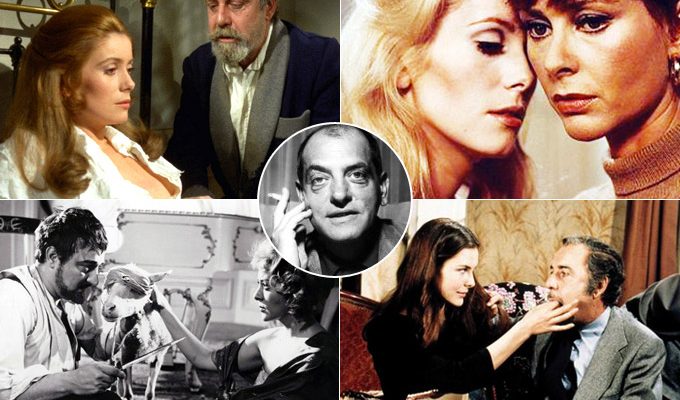 “Tristana” (1970)
“Tristana” (1970)
Quintessential Bunuel, “Tristana” is yet another picture about unrequited love and desire also featuring an obsessive and overprotective bourgeois father figure, a May–December romance and touches of surrealism (yes, he couldn’t get enough). It could even be said “Tristana” was a type of take two or spiritual sequel to “Viridana” given all its similarities, but this time the patriarch does not off himself, instead haunting his young concubine with his restless sexual overtures and desire for control and ownership. Catherine Deneuve stars once again as the titular orphaned youth entrusted into the guardianship of an older, well-respected, but impoverished nobleman (Fernando Rey). Since this is a Luis Bunuel film, the man naturally flips head over heels for her and she briefly even sexually acquiesces. But bored of this old man, she eventually leaves him for an artist closer to her age (spaghetti western and original “Django” star Franco Nero). Another critique of Catholicism and modern society with a few surrealistic flourishes, when Tristana falls ill and loses a leg, she would rather return to care of her former guardian – rich now thanks to an inheritance – and stay in that passionless relationship than endure the harsh realities of her circumstances, all the while calculating a deeper plot. Perhaps a minor work overall, or at least one of the lesser sex, control and desire films, “Tristana” is still beguiling and comically strange.
 “The Discreet Charms Of The Bourgeoise” (1972)
“The Discreet Charms Of The Bourgeoise” (1972)
Along with “Belle De Jour” and “Un Chien Andalou,” “The Discreet Charm Of The Bourgeoisie” is one of Luis Bunuel’s best known works, thanks to winning an Oscar for Best Foreign Language Film (and winning Bunuel and co-writer Jean-Claude Carriere another for Original Screenplay). And yet it’s perhaps aged less well than anything else he’s made; unlike other more timeless subjects of his satire, the mores and morality of the upper-middle-class sometimes feels likes shooting fish in a barrel, even if the filmmaking remains impeccable. The film revolves around six bourgeois friends, including Bunuel favorites Fernando Rey and Jean-Pierre Cassel (Vincent Cassel‘s father) as they continually try, and fail, to sit down for a meal together. From getting the wrong day, to the death of a restaurant owner, to a police raid, to the intervention of a ghost, the sextet are constantly thwarted, their hypocrisies (and perhaps more importantly, those of the audience) constantly put on show. The film is playful, both cinematically and comedically, and it’s one of Bunuel’s most purely enjoyable films, but can’t help but feel like it’s hitting low-hanging fruit, especially given the weightier themes that Bunuel had cast his satirical eye on before. That said, it’s still a lot of fun, and an important and influential entry in his filmography, but it may not quite deserve to sit among the very, very best of the filmmaker’s canon.

